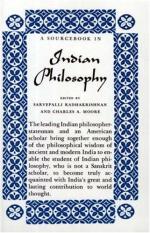|
This section contains 2,992 words (approx. 10 pages at 300 words per page) |

|
From the early centuries CE onward, the philosophical traditions of ancient India produced theories of negation in a broad variety of contexts, dealing with such diverse issues as negative existentials, the referentiality of empty terms, and the laws of the excluded middle and double negation. Highly technical expositions of logical principles pertaining to negation can be found in particular, though not exclusively, in the literature of the so-called New Nyāya (Navya-Nyāya) as of approximately the tenth century (Ingalls 1951, Matilal 1968). Earlier theories are noteworthy especially for their reflections on the nature of absence and its knowledge, in other words, for addressing the issue of negative facts and negative knowledge. These theories developed on the background of an overarching discourse about instruments of knowledge (pramāṇa) that shaped philosophical debate from the first centuries CE onward throughout the first millennium and is...
|
This section contains 2,992 words (approx. 10 pages at 300 words per page) |

|


